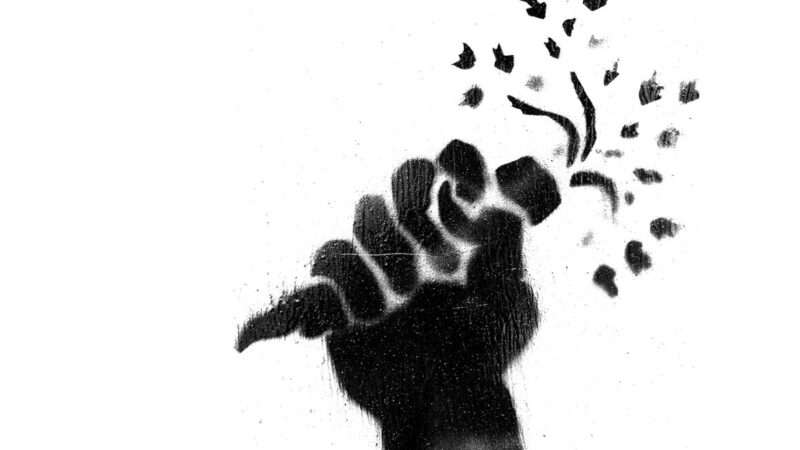
In July, Phillip Picone, a Houston activist, stood before a jury of his peers, charged with the heinous crime of feeding the needy.
Picone is one of several activists affiliated with Food Not Bombs (FNB), a volunteer group with chapters worldwide. Houston police have repeatedly cited FNB activists for distributing free food outside the city's downtown public library, based on a 2012 city ordinance restricting charitable food services. By the time Picone appeared in Houston Municipal Court, FNB members had received 45 tickets at $254 each, for a total of $11,430 in fines.
Houston is part of a national trend. The legal farce in that city is a particularly potent example of an ongoing tug-of-war that pits public order against the First Amendment right to perform charity as a form of expression.
In his 2016 book Biting the Hands That Feed Us, Reason Foundation Senior Fellow Baylen Linnekin noted that crackdowns on good Samaritans began spreading across the country during the first decade of the century. Reason has covered government suppression of food charities in Tampa, Orlando, Fort Lauderdale, Atlanta, Newark, Las Vegas, Charlotte, Philadelphia, and Kansas City. In the latter case, health officials poured bleach on food meant for the homeless in 2018.
Earlier this year, Houston designated a specific area—a police parking lot next to the city jail, it just so happens—for homeless services. But FNB and other groups had been operating outside the library with the city's consent since the 2012 ordinance was passed, and they argue that they have a constitutional right to continue doing so.
City officials disagree, describing the situation as "a health and safety issue." They have vowed to keep issuing citations until the activists stop.
All of which explains how Picone ended up in court. The Houston Chronicle reported that Picone's lawyer demonstrated the absurdity of the city's ordinance to the jury by displaying slices of cake. Under the ordinance, he explained, it was legal to give slices to five people, but six would be illegal if they were "in need." Houstonians can give slices of cake to as many housed people as they want.
The jury found Picone not guilty. He is now pursuing a federal civil rights lawsuit against Houston, arguing that the city violated his free speech and religious rights.
Activists like Picone have succeeded in other cases. In 2018, for example, the U.S. Court of Appeals for the 11th Circuit ruled that distributing food was "expressive conduct" protected under the First Amendment. That decision was a response to a lawsuit by the FNB chapter in Fort Lauderdale.
For FNB, the act of feeding people is a potent form of political speech. But in recent years, cities also have targeted Christian churches for similar charitable services, which they say infringes on their religious expression. Theologians might say that Jesus was talking about spiritual nourishment when he commanded Peter to feed his sheep, but many Christians take that mandate to mean physical care of people as well.
One church embracing that mission is Micah's Way in Santa Ana, California. Micah's Way is suing the city of Santa Ana for refusing to let it distribute food and threatening it with citations. The church argues that feeding the needy is intrinsic to the practice of its faith. It says the city's actions substantially burden its exercise of religion, violating the Religious Land Use and Institutionalized Persons Act.
The U.S. Justice Department agrees with the church's interpretation of Christian duty. In May, the department filed a statement of interest in the church's lawsuit, arguing that feeding the needy is "unquestionably religious exercise" protected by federal law. It sharply attacked Santa Ana's argument that distributing food and drinks was merely "incidental" to the church's practice.
The government has no right to bully good Samaritans. And when its bullying conflicts with the religious duty to perform acts of charity—or the simple human duty to look after one another—reasonable people, like the jurors who acquitted Picone, see that the state's laws look awfully small in comparison.
The post Performing Charity Is a First Amendment Right appeared first on Reason.com.







